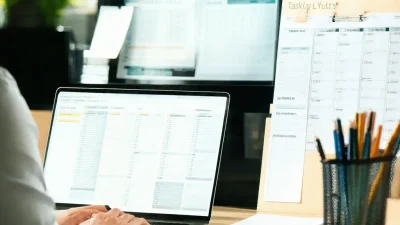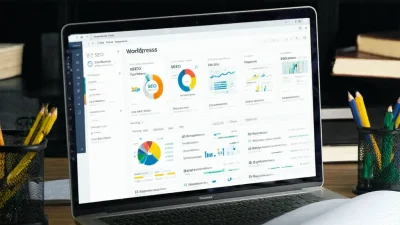Introduction
In today’s fast-paced digital landscape, optimizing your marketing efforts is crucial for achieving long-term success. Whether you’re a seasoned marketer or just starting out, understanding the nuances of digital marketing optimization can make all the difference between mediocrity and卓越.
What Is Digital Marketing Optimization?
Digital marketing optimization involves refining your strategies to maximize efficiency and results. It’s not about doing more; it’s about doing better. By leveraging data-driven insights, you can tailor your campaigns to resonate with your target audience, ultimately driving higher conversions and ROI.
The Power of Data-Driven Decisions
Data is the backbone of successful digital marketing optimization. Without it, you’re just shooting in the dark. Here’s how data can guide your strategy:
- Performance Tracking: Monitor key metrics like click-through rates, conversion rates, and bounce rates to identify what’s working and what isn’t.
- Audience Insights: Use tools like Google Analytics and Facebook Audience Insights to understand your audience’s behavior, preferences, and pain points.
- Predictive Modeling: Leverage AI-powered tools to predict future trends and adjust your strategy proactively.
Optimizing Your Content Strategy
Content is king, but only if it’s well-optimized. Here’s how to make sure yours stands out:
Keyword Research: The Secret Sauce
Keyword research is the foundation of any successful content strategy. Use tools like SEMrush and Ahrefs to identify high-value keywords that align with your audience’s search intent.
Creating Engaging Content
Don’t just write for the sake of writing—create content that engages, educates, or entertains. Here are some tips:
- Storytelling: Craft narratives that resonate emotionally with your audience.
- Visuals: Incorporate high-quality images, infographics, and videos to make your content more digestible.
- Interactive Elements: Use quizzes, polls, and surveys to encourage interaction.
The Role of SEO in Digital Marketing Optimization
SEO is a critical component of digital marketing optimization. By improving your search engine rankings, you can drive organic traffic to your website, which often converts better than paid traffic. Here’s how to optimize your SEO efforts:
On-Page Optimization
Focus on elements like meta tags, headings, and content quality to make sure your pages rank higher in search results.
Off-Page Optimization
Build high-quality backlinks through guest blogging, social media engagement, and partnerships with influencers.
Leveraging Social Media for Growth
Social media platforms like Facebook, Instagram, and LinkedIn are powerful tools for digital marketing optimization. Here’s how to make the most of them:
- Targeted Advertising: Use social media ads to reach specific demographics with tailored messages.
- Influencer Marketing: Collaborate with influencers who have a genuine connection with your target audience.
- Social Listening: Monitor brand mentions and industry trends to stay ahead of the curve.
Optimizing Your Email Marketing Campaigns
Email marketing remains one of the most effective channels for driving conversions. Here’s how to optimize your email campaigns:
- Segmentation: Divide your audience into smaller, more targeted groups based on their preferences and behavior.
- Personalization: Use dynamic content and personalized subject lines to increase open rates and engagement.
- A/B Testing: Experiment with different versions of your emails to identify what works best.
Conclusion
Digital marketing optimization is an ongoing process that requires continuous learning, adaptation, and innovation. By staying ahead of trends, leveraging data-driven insights, and focusing on delivering value to your audience, you can unlock the full potential of your digital marketing efforts.
Final Thoughts
Remember, optimization isn’t about quick fixes—it’s about building a sustainable strategy that evolves with your audience and market conditions. Stay curious, stay adaptable, and keep pushing for better results!





